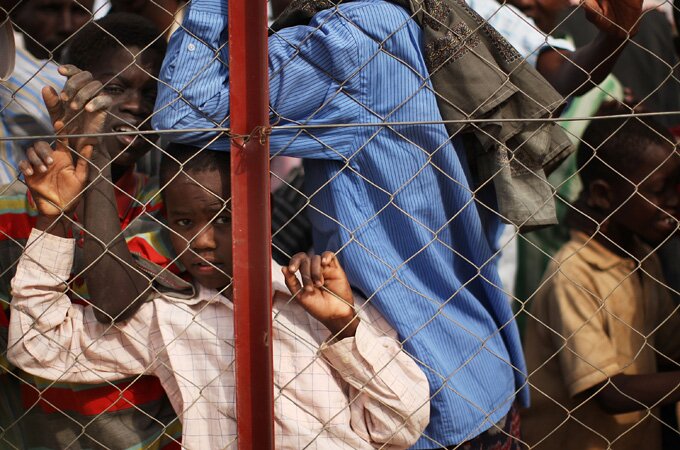Hope and urgency in Somalia .
 Bartamaha (Nairobi):- The formation of a new cabinet is a positive step, but the international community must now offer sustained support.
Bartamaha (Nairobi):- The formation of a new cabinet is a positive step, but the international community must now offer sustained support.
In a bold move that reveals his strong political will and willingness to affect change, the new Somali prime minister has appointed 18 ministers to his cabinet. The appointees are predominantly competent technocrats with a few selected on the basis of political and tribal considerations – making the cabinet the strongest Somalia has ever had.
Through this initiative, Mohamed Abdullahi Mohamed “Farmajo”, the Somali-American prime minister, is taking the international community to task, while offering up an excellent opportunity, upon which Somalis and the international community must capitalise.
The new cabinet must get to work as soon as possible and put together a comprehensive strategic and operational plan. For the remaining ten months of the government’s mandate – politically a long time indeed – it should focus on addressing the challenges of security, governance and controlling corruption.
Security – Statelessness is at the root of Somalia’s problems. The central state has collapsed and the new cabinet must be tasked with putting it back together again. They should begin by creating a professional and capable security force and their security plan must include a de-radicalisation component for Somali youth.
Moreover, Somalis and the international community will expect the transitional government to stabilise the country – in particular Mogadishu, Kismayo and other population centres.
Governance – It is on the governance front that the new cabinet faces some of its most daunting challenges.
Since the Transitional Federal Government (TFG) was created in October 2004, it has completed none of its transitional tasks. In the past six years, neither former cabinets nor parliament members have drafted and passed a single piece of legislation worthy of the name.
But this could also be considered an advantage. A cabinet of technocrats should be able to deliver tangible results within a very short period of time. They must therefore set about developing key legislation concerning different aspects of the state apparatus and drafting acts that govern their own departments.
Corruption – Farmajo and his new cabinet must dismantle the empire of corruption that has taken over the country. Perhaps one of the first actions that the cabinet should take is to appoint a credible anti-corruption commission that can investigate and go after corrupt individuals within the government. It is now publically known that many ghost soldiers and powerful people are using revenue-generating government institutions to enrich themselves.
Finally, in Madrid, Spain, the International Contact Group (ICG) demanded, among other things, that the TFG develop a road map for the post-transition plan. This is a challenge but it is one that the government can address.
While Somalis must have agency and should accept responsibility, the reality on the ground must also be acknowledged. The international community, as a whole, has placed Somalia under a de facto and illegitimate trusteeship. Many external parties exercise significant power – with no accountability – in Somalia. Moreover, most of the efforts of these external parties serve to undermine the state-building project in Somalia.
The international community
The way the international community has addressed a host of issues related to Somalia is simply mind-boggling. The TFG is expected to include all groups, yet avoid human rights abusers; it should fight corruption, but keep corrupt individuals and spoilers in the government; it should deliver tangible results, but not act; it should secure the country, but respect the arms embargo.
Now that there is a technocrat cabinet in place and a new prime minister who is committed to change, it is time for the international community to change its behaviour towards Somalia and to act to empower its government.
To do so, the donor community could take three steps:
Firstly, the international community must pressure internal and external spoilers. Some powerful politicians, clan entrepreneurs and business people have vested interests in perpetuating the country’s status quo. It is therefore necessary to send a strong message that the destructive behaviour of spoilers will not be tolerated. The donor community should also encourage and pressure presidential and parliamentary institutions to let the Council of the Ministers lead the country.
The 550 unpaid members of the enlarged parliament may not be able to keep up with the pace of the new cabinet. Any issues that arise can be easily politicised and some within the parliament may use this for their own political gain.
The parliament has failed to perform all of its functions and the members of parliament do not link the citizens of the country with their government.
Secondly, the international community should provide genuine and substantive support to the Somali people and their institutions at all levels, particularly in the area of security and governance. Creating a secure environment, establishing political institutions and addressing economic issues are very expensive projects. The donor community has invested heavily in countries that have experienced similar problems, such as Afghanistan, Liberia and Sierra Leone. Somalia deserves equal treatment.
Thirdly, the international community currently supports and empowers AMISOM (African Union Mission in Somalia) forces and non-governmental organisations, not Somali institutions. Donors provide AMISOM forces with political and financial support without scrutinising the human rights abuses they commit. But the daily bombardment of civilian areas by AMISOM must stop.
On the social services front, donors choose to fund NGOs, but not government institutions. The ministry of health or education and local governments receive little assistance, while NGOs – which can be just as corrupt as governments – receive millions of dollars. This is a harmful practice that must end.
In short, the formation of the new cabinet offers a sense of hope and urgency. But without sustained and timely support from the international community, Somalis and government leaders cannot do much.
=======================
Source:- Aljazeera.
Comments
comments
 Calendar
Calendar





































